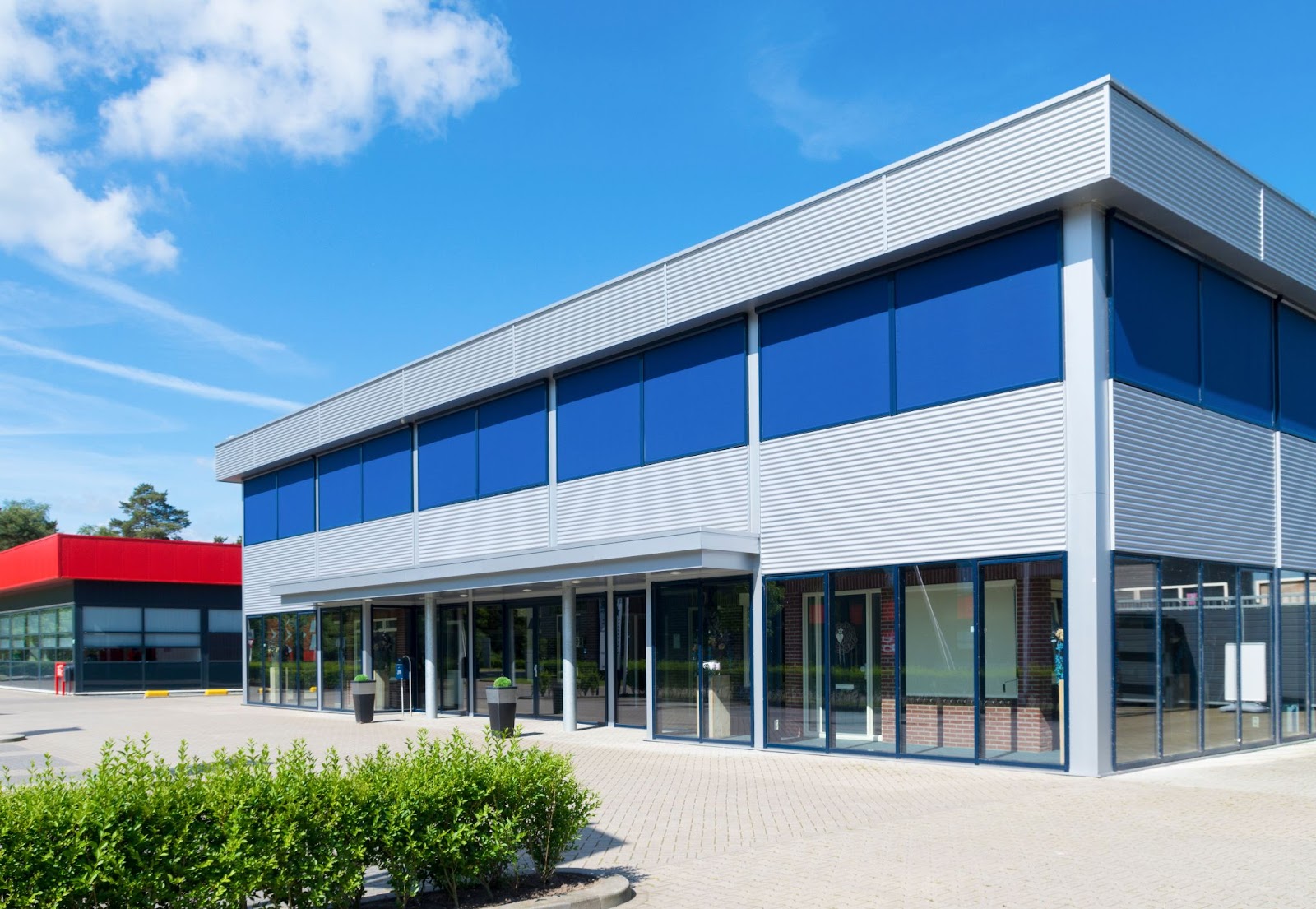Last Updated on October 24, 2023 by Corben Grant
One of the amazing things about real estate as an investment is the sheer number of different investment opportunities it presents. From rentals to development projects, to passive investment funds, and more, there are hundreds of ways to grow wealth in real estate.
However, one area seems to get the largest share of the attention, this being residential real estate. This makes sense on some level as it is the most common form of real estate that most people come into contact with. Homes represent a crucial asset in our society and even those who do not have a deep interest in investing get into the residential market purely to own a home. For most investors, their first real estate purchase was probably their own residence.
This doesn’t mean that you need to limit yourself and your portfolio, however. There is a whole other world beyond residential real estate, that is just as crucial and provides just as much opportunity and that is commercial real estate.
Commercial real estate is any property that is used exclusively for business or commerce-related tasks and is usually rented by the owner to people who need a location for their business. In other words, if it isn’t a home or property held by governments such as parks and recreation centres, it is probably commercial real estate.
Commercial real estate serves a crucial role in our world, providing space for the movement and sale of goods and services. As much as people rely on their homes, they rely on nearby commercial businesses for everyday life and the industrial businesses in the background that keeps our supply chains moving. So it should be no surprise that commercial real estate is a massive industry. But because of that, it may seem intimidating for investors. Owning commercial real estate can be a very different beast than residential real estate.
However, it’s worth taking the time to learn a bit of the difference and how to invest in commercial real estate. In this article, we will look at some of the things you need to know to get started and what the process might look like for your first commercial real estate purchase.
Types of commercial real estate
Commercial real estate is generally divided into a few major segments.
The first is retail property, which is a space that is designed for retail stores and other similar public-facing businesses. The second would be offices, which provide a workspace for companies. The third is industrial, which includes things like factories as well as warehouses, garages, and other related facilities.
Finally, there are multi-family properties, which are properties that contain five or more residential units. Though these are residential spaces, the buildings themselves are operated as a business, so they fall under commercial real estate.
You may also find mixed-use properties that combine two or more of the above classes, or potentially one of the above with residential space. Each of these segments is unique in its own way and varies by size, amenities, and location. Because they can be very different, most commercial real estate investors like to focus on a single area of expertise when building their portfolios.

Commercial real estate classes
You may also see commercial real estate designated under a class, such as class-A, class-B, or class-C. These classes tell you a bit about the age and state of the building, with class-A being the most newly built or renovated buildings in prime locations.
As you go lower in class, the buildings will be older, or in less desirable locations. The bottom levels, class-C or sometimes D, will generally need some level of renovation or redevelopment to improve the building’s economic potential.
Risks and benefits of commercial real estate
When managed correctly, commercial real estate can offer fantastic returns and cash flow for an investor. However, some risks come with your investment that you need to be aware of before you buy.
Steady cash flow
One benefit of commercial investments is steady cash flow. Generally, businesses pay higher rent than residential tenants, and if you can manage your expenses, this means a significant amount of money in return.
In addition to this, commercial leases tend to be a lot longer than residential leases. A basic commercial lease will run from three to five years, with some being signed on for 10 years or longer. This means that your rental income is essentially guaranteed for a long time and if the tenant is doing well in business, you will be largely sheltered from market fluctuations.
Vacancy and market risks
There are still some market risks that commercial real estate can be subject to. For example, if for whatever reason, you are unable to find a tenant, you will lose out on any income until you find someone new to rent to. If you own a property with a single rentable space, this means your income flow will halt immediately. And, since commercial rents are , you may be required to lower rents to be competitive with other commercial property owners.
Legal risks
There are also legal risks to owning commercial properties. If you own a building where people work, live, or visit, you are, on some level, responsible for their safety. For example, if a building is unsafe and someone gets hurt, this can put the property owner in serious legal trouble. Another issue could be if your building presents an environmental issue for the surrounding area which you will be responsible for paying to clean up.
Owning and operating a commercial property
When it comes to buying commercial property, you have a lot of options and things you should keep in mind.
Choosing a property type
You should start by deciding on what kind of commercial building you want to own. Beyond knowing simply what kind of building, you need to understand how it fits into a commercial market. What sort of business will you be renting to? What amenities does this business need? Where is there a demand for this type of business?
A deciding factor here may be budget as much larger investments may be beyond the reach of someone just starting in this field. In addition, some properties like large factories will require a lot more work to manage and find tenants than something like a small retail space, so your level of experience can also be a factor.
You should also consider how the types of tenants will affect the stability of your investment. For example, businesses like bars, restaurants, or specialty goods stores can be riskier as tenants as they tend to have higher failure rates, unless your property is in a very desirable location, you might want to avoid these types of tenants.

If you are renting, you won’t need to worry about running a business yourself, but your ability to easily find tenants will in part rely on how successful a business in your space can be, so finding the ideal space can make a big difference in your investment performance. For example, office space will be much easier to rent in a downtown core as opposed to a similar space in a secluded corner of the city.
Overall, the due diligence process for a commercial property can be much more in-depth than in a residential property. You should understand the costs, income, physical condition, and local market of any building before you buy. And, since commercial real estate tends to be a very long-term investment, you need to make sure you are looking at prospects well into the future from both a market performance and property maintenance perspective.
Financing
In terms of financing, commercial buyers will usually buy individually or with a group of investors. If you choose to invest in a fund with a group of investors, make sure you understand each member’s rights and responsibilities when it comes to the property. For an individual, you will be able to get a commercial mortgage, which is similar to a residential mortgage with a few differences.
If you plan on getting a commercial mortgage, you should have a property in mind first as your lender can take the property’s profitability into account when approving you and determining your terms. Commercial mortgages can also have higher interest rates, and due to the often larger loan amounts, much stricter criteria for approval. If you are buying property for your own business to occupy, the lender may also want to see a business plan.
Since the commercial real estate loan process can be pretty different from residential mortgages, you may want to consult a mortgage broker to make things easier on your first purchase.
Commercial tenants and leases
Finding and maintaining commercial tenants is key to a successful commercial investment. If you are used to finding tenants for residential properties, this can be a benefit, but you should be prepared for some big differences here as well.
For one, negotiating with a commercial tenant is more of a business deal than a standard residential lease. This can mean negotiations can take a little longer and finding the right tenant may be a more involved process. However, these tenants also tend to stay in place much longer, so getting a good tenant is crucial. As a new investor, you may want to consult the help of a property management company that can help with finding tenants as well as taking care of day-to-day needs for the property.
Finding commercial properties and working with a real estate agent
Finding the right commercial space to purchase can be a tough process all on its own. Due to the need for thorough due diligence and the fact that every property has its benefits and cost/income potentials, you may need to look at many different properties before you find the right one for you. Though this can take a lot of time, it will ultimately be worth it – you should not buy a commercial property without knowing everything that you can about it.
Just like when buying a home, you will want to work with a real estate agent when looking for a commercial property. A real estate agent who specializes in commercial properties can be a major benefit in your search. They can help you find listings and decide which properties are best for your circumstances and can help you with extensive market knowledge as well as potential access to exclusive property offerings.
Passive investment in commercial real estate
If you aren’t ready to handle a commercial purchase, don’t want to manage a property, or simply don’t have the money for a direct purchase you may be interested in passive commercial real estate investments. These passive investment options include things like or real estate funds that can allow you to take advantage of the commercial market without owning any properties yourself. Though you won’t have any direct control over a property, you gain the benefit of a much more hands-off experience as the fund managers handle all of the behind-the-scenes work.
Investment performance and market trends
Like any real estate investment, commercial real estate is considered a success when it makes money for the owner. There are a few indicators that can help you determine your property’s profitability such as your net operating income (NOI) and your capitalization rate.

Net operating income is essentially a measure of the profitability of a property. To find the NOI, you take all the income the property generates and subtract any operating expenses like utilities, property taxes, property management fees, insurance and more. If this number is positive, you are making money.
Another metric, capitalization rate, is the ratio of a property’s asset value to its net operating income. For example, if your property is worth $1 million and makes $100,000 a year, your capitalization rate would be 10%. This can be used to measure and predict future returns. Ultimately, it will be up to you to determine a target cap rate that you think your property should perform at.
It’s also worth paying attention to market trends that can affect your commercial real estate investment. In residential real estate, there is a mostly constant demand for homes and this demand shifts slowly. However, in commercial real estate markets, demand for different kinds of properties can come in and out of favour. For example, given the rise of the things like e-commerce and work-from-home jobs, especially given recent pandemic difficulties, commercial real estate properties in the office and retail sectors have, in some areas, seen a lot of difficulty in recent years with
This does not mean that these are poor investments, but that you simply need to be aware of these possibilities. For example, a smart investor may look at the recent decline in retail tenancies as a growth opportunity and how now is a better time to invest than waiting for prices to increase again. Another more risk-averse investor may want to look at properties with more consistent demand.
Conclusion
The world of commercial real estate investing can be a great opportunity, but it definitely comes with a lot to learn as a new commercial real estate investor. Though we can’t cover every facet of commercial real estate purchase and ownership, hopefully, this article gave you a good place to start on your journey to commercial real estate investing.
Corben joined CREW as a relative newcomer to the field of real estate and has since immersed himself and learned from the experts about everything there is to know on the topic. As a writer with CREW, Corben produces informative guides that answer the questions you need to know and reports on real estate and investment news developments across Canada. Corben lives in Guelph, Ontario with his partner and their two cats. Outside of work, he loves to cook, play music, and work on all kinds of creative projects. You can contact Corben at corben@crewmedia.ca or find him on Linkedin at https://www.linkedin.com/in/corbengrant/.









